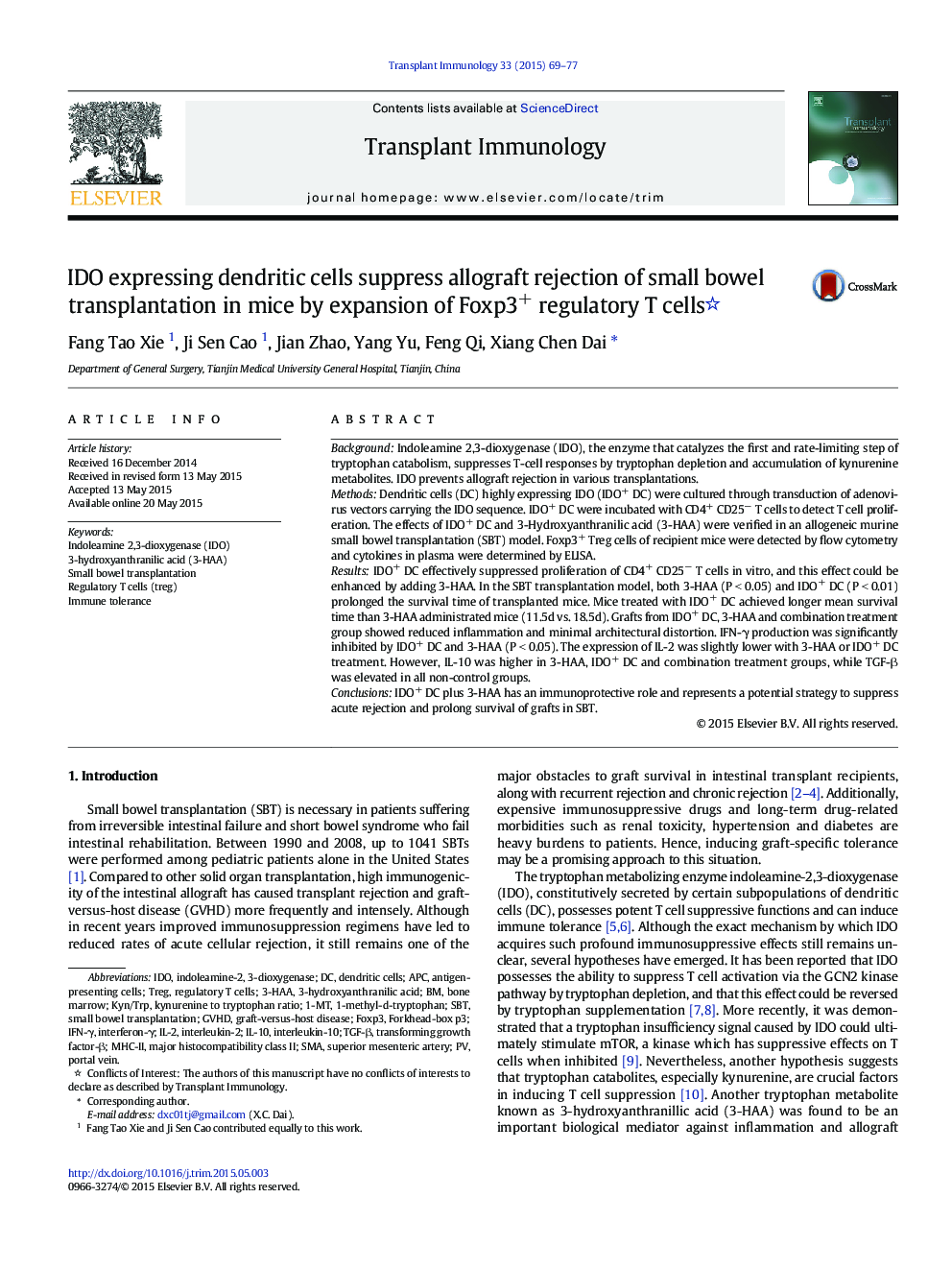| Article ID | Journal | Published Year | Pages | File Type |
|---|---|---|---|---|
| 3392022 | Transplant Immunology | 2015 | 9 Pages |
•DC with adenoviral vectors encoding IDO is effective to suppress T cell activity and induce Foxp3+ T cells.•Tryptophan catabolite 3-HAA can enhance the effect of IDO.•IDO+ DC and 3-HAA can prolong the survival time of SBT recipients.•IDO+ DC and 3-HAA can decrease the infiltration of lymphocytes and promote expansion of Foxp3+ T cells.•IDO+ DC plays more than 3-HAA in SB.T
BackgroundIndoleamine 2,3-dioxygenase (IDO), the enzyme that catalyzes the first and rate-limiting step of tryptophan catabolism, suppresses T-cell responses by tryptophan depletion and accumulation of kynurenine metabolites. IDO prevents allograft rejection in various transplantations.MethodsDendritic cells (DC) highly expressing IDO (IDO+ DC) were cultured through transduction of adenovirus vectors carrying the IDO sequence. IDO+ DC were incubated with CD4+ CD25− T cells to detect T cell proliferation. The effects of IDO+ DC and 3-Hydroxyanthranilic acid (3-HAA) were verified in an allogeneic murine small bowel transplantation (SBT) model. Foxp3+ Treg cells of recipient mice were detected by flow cytometry and cytokines in plasma were determined by ELISA.ResultsIDO+ DC effectively suppressed proliferation of CD4+ CD25− T cells in vitro, and this effect could be enhanced by adding 3-HAA. In the SBT transplantation model, both 3-HAA (P < 0.05) and IDO+ DC (P < 0.01) prolonged the survival time of transplanted mice. Mice treated with IDO+ DC achieved longer mean survival time than 3-HAA administrated mice (11.5d vs. 18.5d). Grafts from IDO+ DC, 3-HAA and combination treatment group showed reduced inflammation and minimal architectural distortion. IFN-γ production was significantly inhibited by IDO+ DC and 3-HAA (P < 0.05). The expression of IL-2 was slightly lower with 3-HAA or IDO+ DC treatment. However, IL-10 was higher in 3-HAA, IDO+ DC and combination treatment groups, while TGF-β was elevated in all non-control groups.ConclusionsIDO+ DC plus 3-HAA has an immunoprotective role and represents a potential strategy to suppress acute rejection and prolong survival of grafts in SBT.
